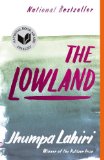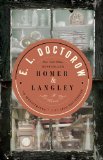Summary | Excerpt | Reviews | Read-Alikes | Genres & Themes | Author Bio

An American Chronicle Novel
by Gore VidalThe concluding volume in Gore Vidal's celebrated and bestselling American empire novels.
The Golden Age is the concluding volume in Gore Vidal's celebrated and bestselling American empire novels - a unique pageant of the national experience from the United States' entry into World War Two to the end of the Korean War.
The historical novel is once again in vogue, and Gore Vidal stands as its undisputed American master. In his six previous narratives of the American empire - Burr, Lincoln, 1876, Empire, Hollywood, and Washington, D.C.-he has created a fictional portrait of our nation from its founding that is unmatched in our literature for its scope, intimacy, political intelligence, and eloquence. Each has been a major bestseller, and some have stirred controversy for their decidedly ironic and unillusioned view of the realities of American power and of the men and women who have exercised that power.
The Golden Age is Vidal's crowning achievement, a vibrant tapestry of American political and cultural life from 1939 to 1954, when the epochal events of World War Two and the Cold War transformed America, once and for all, for good or ill, from a republic into an empire. The sharp-eyed and sympathetic witnesses to these events are Caroline Sanford, Washington, D.C., newspaper publisher turned Hollywood pioneer producer-star, and Peter Sanford, her nephew and publisher of the independent intellectual journal The American Idea. They experience at first hand the masterful maneuvers of Franklin Roosevelt to bring a reluctant nation into World War Two, and later, the actions of Harry Truman that commit the nation to a decades-long twilight struggle against Communism-developments they regard with a marked skepticism, even though they end in an American global empire. The locus of these events is Washington, D.C., yet the Hollywood film industry and the cultural centers of New York also play significant parts. In addition to presidents, the actual characters who appear so vividly in the pages of The Golden Age include Eleanor Roosevelt, Harry Hopkins, Wendell Willkie, William Randolph Hearst, Dean Acheson, Tennessee Williams, Joseph Alsop, Dawn Powell-and Gore Vidal himself.
The Golden Age offers up United States history as only Gore Vidal can, with unrivaled penetration, wit, and high drama, allied to a classical view of human fate. It is a supreme entertainment that will also change readers' understanding of American history and power.
Praise for Gore Vidal and His Narratives of the American Empire: "Vidal has no peers at breathing movement and laughter into the historical past."
-Time
"If Gore Vidal were not such a brilliantly witty and ruthlessly irreverent novelist, we would be more ready to recognize him as the fine historian he is. Nowhere among his impressive historical novels does he bring together these talents with more penetrating bravado than in this gripping and illuminating dissection of the American empire at high tide."
-Ronald Steel
"Vidal writes so well that you find yourself holding your breath over something that is a foregone conclusion...Vidal's talent makes the bloated corrupters of Washington live in a way that history books don't." -Boston Globe
"It is probably impossible to be an American and not be impressed by Vidal's telescoping of our early history." -The New Yorker
"Vidal is a masterly American historical novelist...Vidal's imagination of American politics, then and now, is so powerful as to compel awe."
-Harold Bloom, New York Review of Books
"No living American surpasses Gore Vidal in the difficult art of the historical novel...He has re-created American history...with an immediacy, color and detail that [are] denied the historian."
-Michael Beschloss, Chicago Tribune
"Mr. Vidal demonstrates a political imagination and insider's sagacity equaled by no other practicing fiction writer I can think of."
-New York Times Book Review
"Our greatest living historical novelist."
-Anthony Burgess
"[Vidal] deals with issues that most other novelists (and historians) are reluctant to confront...talks straight about important matters, so it is perhaps true that we have to come to terms with Vidal if we are to do justice to ourselves. That is the power of the man. As with all the great ones. He has always annoyed us because he will not allow us to evade the issues."
-William Appleman Williams, In These Times
Chapter One
Timothy X. Farrell suddenly visualized the opening shot to the film that he had planned to make of Daphne Du Maurier's lush novel Rebecca. He had just pulled into the driveway to Laurel House, set high above the slow-churning Potomac River, and there before him in the icy silver moonlight was the start of his movie had David O. Selznick not outbid him for the movie rights and then hired Alfred Hitchcock, of all people, to direct. Plainly, a true disaster was now in the making.
Attendants parked cars in front and to the side of the mock-Georgian facade of the house of what would have been his brother-in-law, Blaise Delacroix Sanford, had Timothy and Blaise's half sister, Caroline Sanford, ever had time to get married in those busy years when, together, they had created a film studio that, for a time, nearly changed movie history until . . . What was the name, he wondered, of Olivia De Havilland's sister? The one who was now the lead in Rebecca.
Timothy parked at ...

If you liked The Golden Age, try these:

by Jhumpa Lahiri
Published 2014
Epic in its canvas and intimate in its portrayal of lives undone and forged anew, The Lowland is a deeply felt novel of family ties that entangle and fray in ways unforeseen and unrevealed, of ties that ineluctably define who we are

by E.L. Doctorow
Published 2010
From Ragtime and Billy Bathgate to The Book of Daniel, World’s Fair, and The March, the novels of E. L. Doctorow comprise one of the most substantive achievements of modern American fiction. Now, with Homer & Langley, this master novelist has once again created an unforgettable work.




It is among the commonplaces of education that we often first cut off the living root and then try to replace its ...
Click Here to find out who said this, as well as discovering other famous literary quotes!